Aquarium challenges negative perceptions of sharks
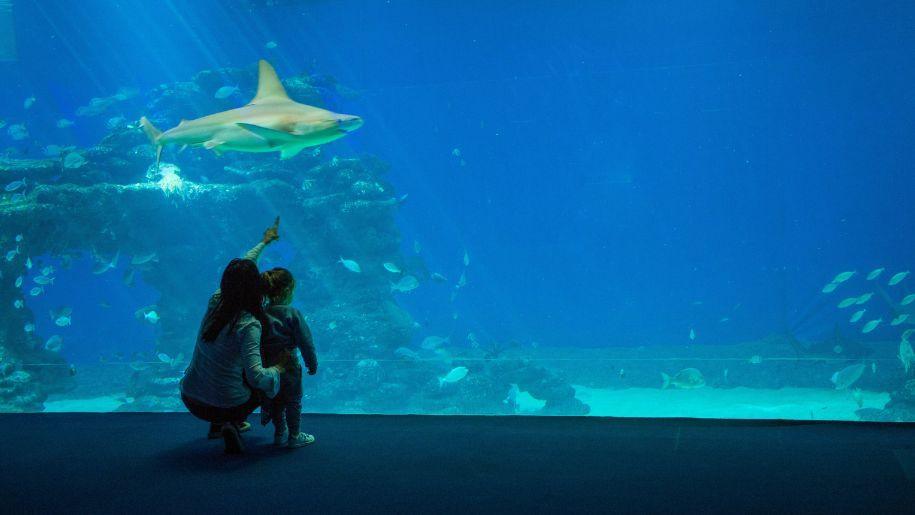
The talks and exhibitions aim to shift public perceptions of the species and aid conservation efforts
- Published
An aquarium is hosting an all-summer event, where visitors can learn more about endangered sharks and challenge negative perceptions of the creatures.
Bristol Aquarium is hosting the 'Summer of Sharks' from 20 July to 1 September.
Events include daily feeds and hands-on workshops, alongside art exhibitions from The Shark Trust.
All funds raised from the sale of the exhibition pieces will go towards policy and conservation work to help sharks in the wild.
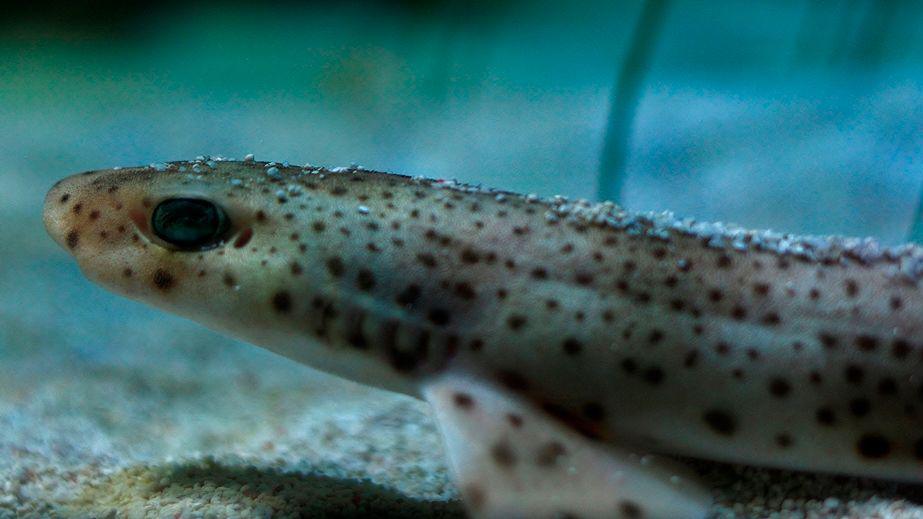
The Baby Lesser Spotted Cat Shark is just one of the rare species on display
The aquarium said: "Sharks have long sparked fear and fascination within the human imagination.
"An elusive creature older than the trees, with black eyes and a mysterious fin carving through the sparkling surface of the waves."
It added visitors "will be able to learn all about the differences between how sharks have historically been portrayed in film, television and the news, in comparison to the facts about their behaviour and biology."
As apex predators, sharks play a vital role in the ecosystem by maintaining the species below them in the food chain and serving as an indicator for ocean health.
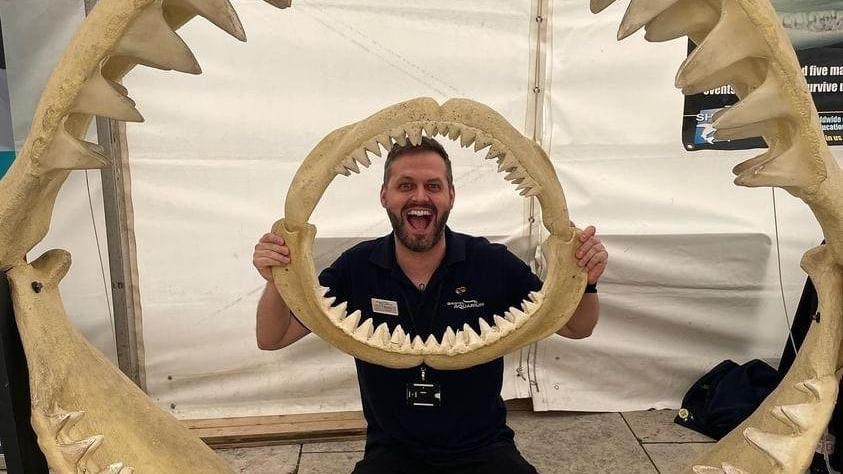
Visitors can watch the aquarium’s variety of sharks being fed and will be able to get up close with some shark eggs and teeth at a daily workshop
Bristol Aquarium is home to six types of shark, with breeds both native to the UK and from around the world.
Part of the event will include a 'fact versus fiction' workshop.
"Through our engagement we hope to educate people not just about the life and biology of our sharks," said general manager, Sunny Hubbard.
"But also to help teach people about shark conservation, and how they can get involved in helping to preserve these beautiful animals for years to come.”
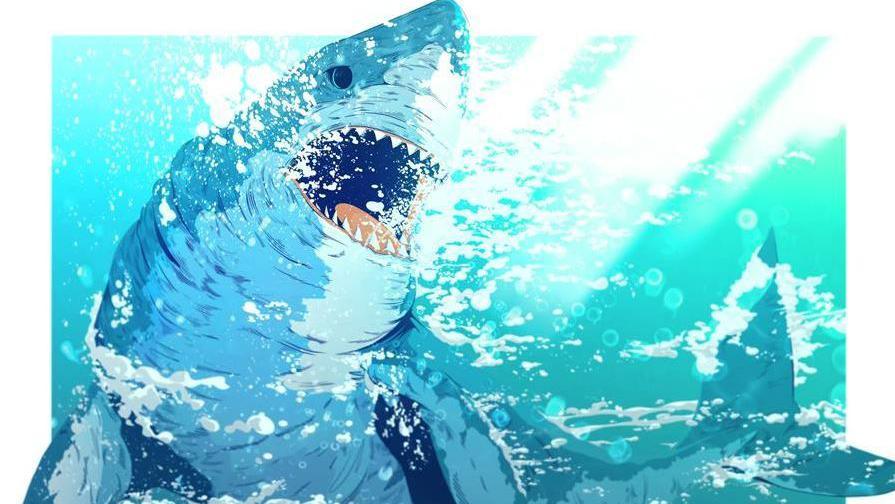
All funds raised through the sales of prints and originals will go towards the Big Shark Pledge
From 3 August, The Shark Trust's exhibition 'Oceanic 31' will feature 31 pieces of artwork highlighting 31 different species of sharks and rays.
Of the featured species, ranging from the well-known great white and whale shark to the lesser-known pygmy long horned devil ray, 24 are classed as threatened on the ICUN red list. , external
It is hoped the artwork will help people learn about the global challenges these shark species face, such as finning, habitat destruction and bycatching.
Follow BBC Bristol on Facebook, external, X, external and Instagram, external. Send your story ideas to us on email or via WhatsApp on 0800 313 4630.
Related internet links
- Published25 August 2019
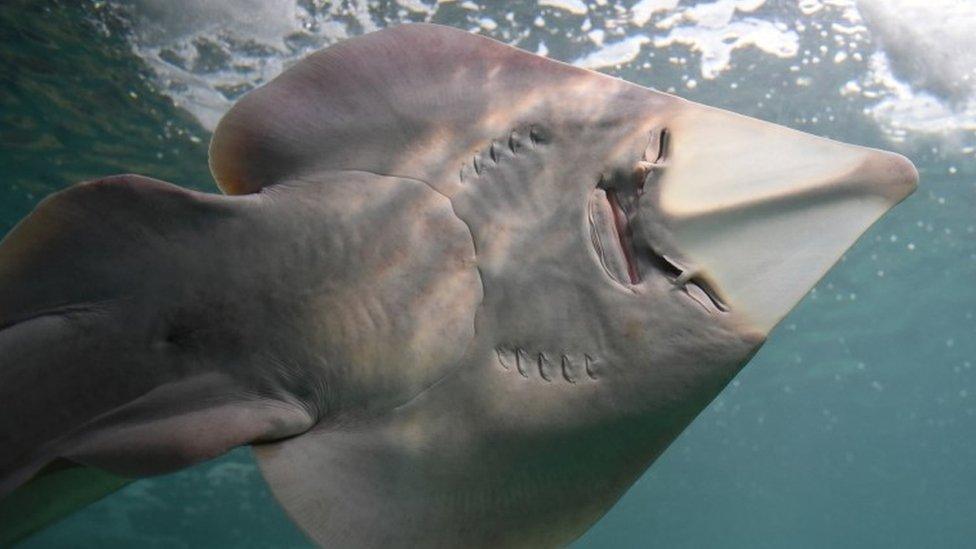
- Published9 June 2015
- Published6 March 2014